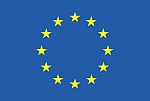short menu
About EUREC
National Information
Services
- Event Calendar
- Information for Researchers
- Training Materials
- Login for EUREC members

This network has received funding from the European Union.
Event details
<-Overview | Previous event in calendar | Next event in calendar
12th Annual Maastricht Symposium on Global Health. The politics of knowledge production in Global Health: Towards the undoing of coloniality and the revitalizing of lived experiences
Date: 10/20/2022, 10:00-18:00h
Location:
Maastricht University
Universiteitssingel 50
6229 ER Maastricht
The Netherlands
Zoom
Speaker: Professor Seye Abimbola (University of Sydney, Australia & Utrecht University, the Netherlands), Dr. Carolina Alonso Bejarano (University of Warwick, UK), Dr. Eugene Richardson (Harvard University, US), Dr. Alana Helberg-Proctor (University of Leuven, Belgium), Dr. Sebastian Fonseca (University of Exeter, UK)
Further information: https://www.eventbrite.com/e/12th-annual-maastricht-symposiu...
Description: This event, organised by Maastricht University, will be held in a hybrid format with the possibility to attend in person or online.
The "decolonizing global health" movement has gained momentum, and an increasing number of scholars recognize that dominant research and practices in this field sometimes contribute more to reproducing fundamental power imbalances and inequities, than tackling them. By using an epistemology and ontology that imply objectivity and universality, dominant scientific conventions help to turn Western worldviews and conceptualizations of humanity and health into assumed neutral truths, persistently marginalizing and disqualifying other forms of knowledge. Critics argue that we run the risk that the patterns of racism, sexism and heteronormativity embedded in coloniality are (implicitly and explicitly) reproduced and legitimized in Global Health science and research, and in related disciplines such as epidemiology, public health, social medicine and medical anthropology.
Although scholars increasingly denounce coloniality and attempt actively to deconstruct ingrained systems of power and privilege, existing scientific institutions related to, for instance, publishing and funding of research, retain assumed universal standards and promote "objective, evidence-based" practice. Therewith, they continue to marginalize valuable forms of knowledge production that are more attuned to lived experiences and local contexts. In order to challenge these dynamics, not only is it necessary to have more representation of researchers from diverse settings in funding organizations, agenda setting and editorial boards; it is also essential that the dominant universalist knowledge ideals that underpin these dynamics are themselves altered.
Epistemological approaches, such as critical epidemiology – which was developed in Latin America and emphasizes context and lived experiences as central to conceptualizations of, and methods to investigate, health and disease – and activist, radical participative ethnography - in which 'research participants' are not regarded as passive, but rather as active co-researchers - demonstrate how these dominant dynamics can be challenged, creating more equitable and reciprocal relationships between researchers from diverse settings. Further, they demonstrate how lived experiences can be better acknowledged in global health research by reducing the distance between people who experience health issues and those who investigate them.
In this symposium we will explore how and where coloniality continue to dominate Global Health research and discuss diverse ways of producing knowledge.
Contact:
ghsymposium@maastrichtuniversity.nl
Organizer: Maastricht University
Keywords: research ethics; health system; ethics and science; philosophy of science
<-Overview | Previous event in calendar | Next event in calendar
